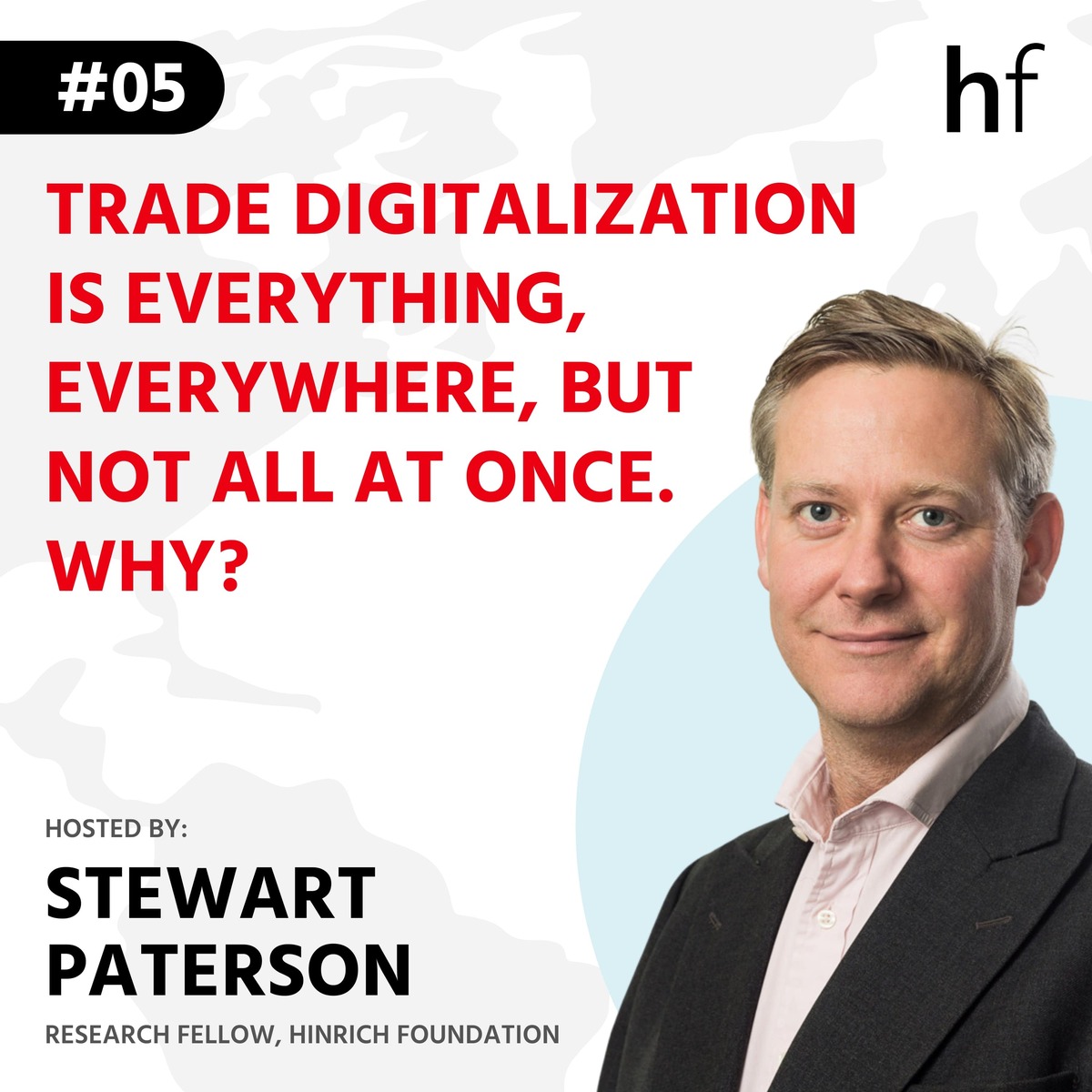Current Accounts: The Hinrich Foundation Trade Podcast
Trade digitalization is everything, everywhere, but not all at once. Why?
Published 20 June 2023
In this fifth edition of Current Accounts, the Hinrich Foundation's podcast on global trade, Hinrich Foundation Research Fellow Stewart Paterson speaks with former New Zealand trade negotiator Stephanie Honey on the seeming ubiquity of trade digitalization and the resistance in parts of the global trade supply chain to digital facilitation.
Tune in to the fifth episode of the Hinrich Foundation’s podcast series here:
In the last few decades, the internet enabled a new trade ecosystem in which digital technologies forged new ways to trade and created new products and services. While digital technologies now seem ubiquitous, the rules applied to the digital economy remain disjointed and major parts of the supply chain remain resistant to digitization.
This episode of Current Accounts turns its attention to this much talked-about but seldom understood area of trade digitalization with guest Stephanie Honey, director of Honey Consulting and a former trade negotiator. The episode discusses the definition and prevalence of digital trade, the difference between digitized and digitalized trade processes, and how to address the lack of regulatory guardrails for newer kinds of digital tools that can be used in trade.
Here’s an excerpt of Stephanie Honey's conversation with Current Accounts:
|
Stewart Paterson: |
How do you define digital trade? And how prevalent is it? |
|
Stephanie Honey: |
There is no single agreed definition across different countries about what digital trade constitutes. But there are a lot of very clever people who have spent a lot of time thinking about how one could define this amorphous way of doing business across borders. The OECD has come up with what I think is a very good working definition, which is "digitally enabled transactions of trade and goods and services that can either be digitally ordered or digitally delivered or both." And if you unpack that, it does not take much to realize that just about any mode of trade, whether you are shipping agricultural products, your containers of butter or beef, or sending digital services, so things like trade policy consultancy, or streaming your Netflix in an evening, all those things are actually 'digital trade' in different forms.
To give you an example, as an agricultural exporter, you might use digital payments, you might order or do your contract with your customer using a contract or e-invoicing. You might send the product using a supply chain management tool that is based on blockchain. When you get to the border, all the paperwork that you know might have once been a big stack of reams of physical paper might now be done with electronic documents, even to the extent that the documents might be part of a sort of very digitalized process. So, your trade financing, for example, might have been done with digital tools, and electronic documents, through a digital single window at the border. All of this is going to essentially make the process of the trade transaction more efficient, higher integrity - you are not going to lose a piece of paper and wonder whether your products going to get there - and less costly ideally at the end as well.
Last year, it was estimated that domestic and international data flows were going to have exceeded the volume of all internet traffic up to 2016. With just that little data point, you can see that we are really in a world where digital is everywhere and everything. |
Tune into the Hinrich Foundation’s podcast series for insights on international trade.
© The Hinrich Foundation. See our website Terms and conditions for our copyright and reprint policy. All statements of fact and the views, conclusions and recommendations expressed in this publication are the sole responsibility of the author(s).



